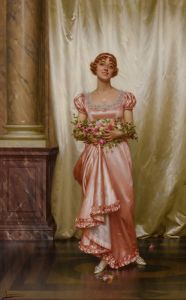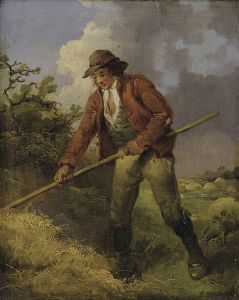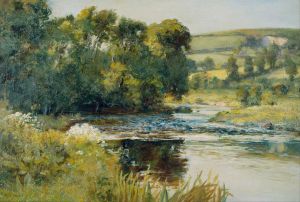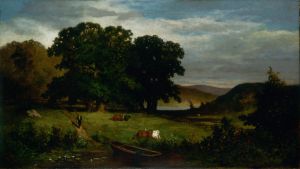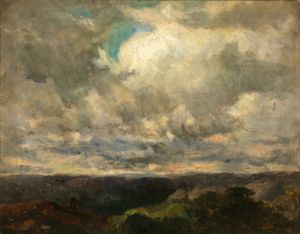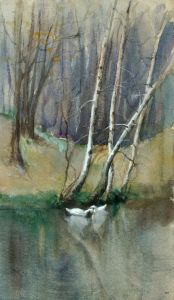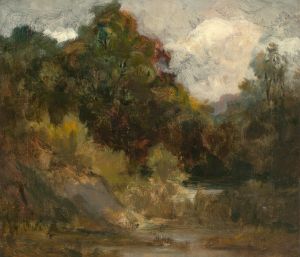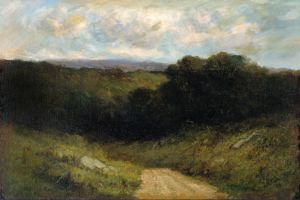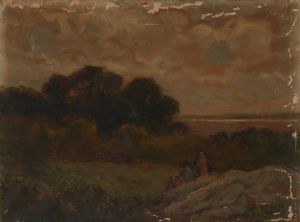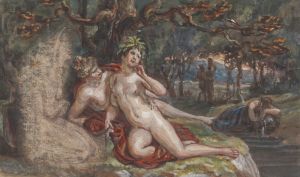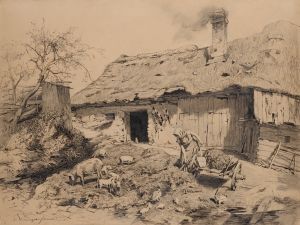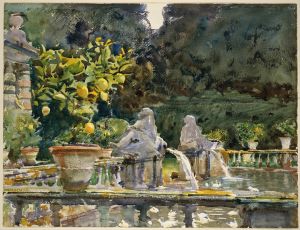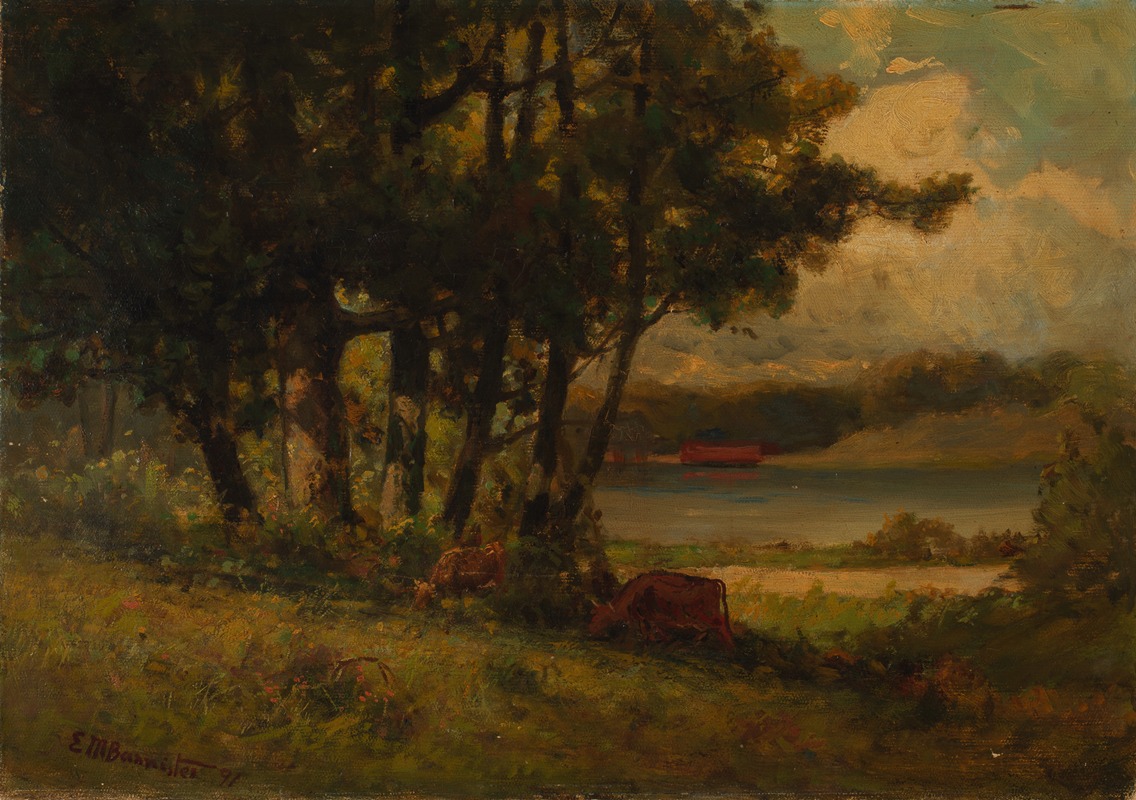
Untitled
A hand-painted replica of Edward Mitchell Bannister’s masterpiece Untitled, meticulously crafted by professional artists to capture the true essence of the original. Each piece is created with museum-quality canvas and rare mineral pigments, carefully painted by experienced artists with delicate brushstrokes and rich, layered colors to perfectly recreate the texture of the original artwork. Unlike machine-printed reproductions, this hand-painted version brings the painting to life, infused with the artist’s emotions and skill in every stroke. Whether for personal collection or home decoration, it instantly elevates the artistic atmosphere of any space.
Edward Mitchell Bannister (1828-1901) was an African American painter known for his contributions to the American art scene during the 19th century. Born in St. Andrews, New Brunswick, Canada, Bannister moved to Boston in the 1840s and later settled in Providence, Rhode Island. He is celebrated for his landscape paintings, which often reflect the influence of the Barbizon School, a group of French painters known for their realistic and pastoral depictions of rural life.
One of Bannister's notable works is "Untitled," a painting that exemplifies his mastery of landscape art. Although the exact date of creation for "Untitled" is not specified, it is consistent with the style and themes prevalent in Bannister's body of work during the late 19th century. The painting showcases Bannister's skillful use of light and shadow, as well as his ability to capture the serene beauty of the natural world.
"Untitled" features a tranquil rural scene, with a focus on the interplay between the natural elements such as trees, water, and sky. Bannister's brushwork is delicate yet expressive, creating a sense of movement and life within the landscape. The composition is balanced, drawing the viewer's eye through the scene and inviting them to explore the details of the environment.
Bannister's approach to landscape painting was influenced by his admiration for the works of European masters, as well as his desire to depict the American countryside with a sense of realism and reverence. His paintings often evoke a sense of peace and contemplation, reflecting his deep appreciation for nature.
Throughout his career, Bannister faced significant racial barriers and discrimination. Despite these challenges, he achieved considerable recognition and success. In 1876, he won a bronze medal at the Philadelphia Centennial Exposition for his painting "Under the Oaks," which marked a significant milestone in his career and helped to establish his reputation as a talented artist.
Bannister was also an active member of the art community in Providence, co-founding the Providence Art Club in 1880. The club provided a supportive environment for artists to collaborate and exhibit their work, and it remains an important institution in the Rhode Island art scene to this day.
Edward Mitchell Bannister's legacy is significant not only for his artistic achievements but also for his role in breaking down racial barriers in the art world. His works, including "Untitled," continue to be celebrated for their beauty, technical skill, and the unique perspective they offer on the American landscape.
In summary, "Untitled" by Edward Mitchell Bannister is a testament to the artist's talent and his ability to capture the essence of the natural world. Through his landscapes, Bannister conveyed a deep sense of tranquility and respect for nature, leaving a lasting impact on American art history.





